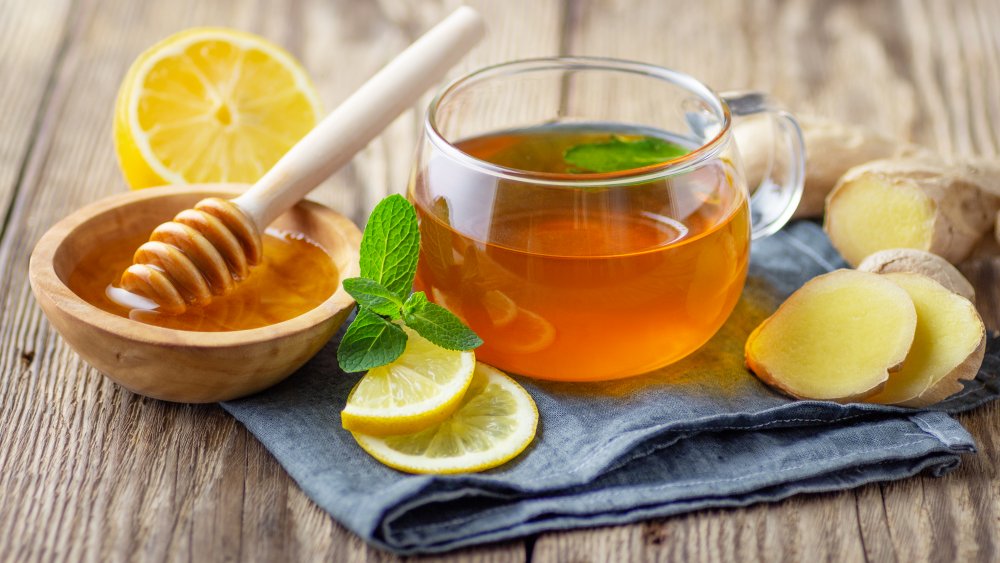Why You Should Think Twice Before Drinking Lemon-Flavored Tea
Tea is known to be one of the oldest beverages in the world, as it was discovered in 2700 BC, according to the Food and Agriculture Organization of the United Nations. Statista points out that there are over 1000 varieties of tea in the world, ranging anywhere from the well-known green tea to the traditional Chinese tea oolong. About 30 to 40 years ago tea drinking began to rise within the United States, and today nearly 159 million Americans drink tea every day (via Your Best Digs and Simple Loose Leaf). An estimated 3.8 billion gallons were consumed in 2018.
Although tea as a whole is seen as a very healthy beverage – offering benefits like bone protection and immune system support – not all teas are made the same (via Today). There are "good teas" that are always good to stock up on, and "bad teas" that you need to be wary of. One tea that you should steer clear from? Teas that boost come with the lemon-flavored moniker.
What makes lemon-flavored tea bad for you?
To clarify things a bit more, the argument isn't for tea drinkers to steer clear of adding natural lemon juice to their tea – it's to be careful with buying teabags that come with the added lemon flavor. Why? Those teas have been found to have higher levels of lead (yes, lead). Magdalena Jeszka-Skowron, Ph.D., of the Poznan University of Technology in Poland tells Woman's Day that lemon tea bags normally use tea leaves of lower quality and caliber. She notes how it has "higher amounts of noxious metal than tea infusions made from whole leaves."
Jeszka-Skowron also recommended not adding the natural lemon juice until after drinkers have removed the teabag from their cup, stating that "when you add lemon to the tea, its pH becomes lower and more noxious metals are extracted to the tea." Powdered and liquid lemon-flavored teas aren't exempt from this rule either, as those have been found to possess high amounts of fluoride and acid content.

